Matthew Gardiner’s Signature Achievement
Signature's artistic director Matthew Gardiner steers his own "wheel of dreams" as he helms the company's massive 'Ragtime.'

She’s an ageless beauty, glamorous yet humble, and a seasoned stage performer who almost always makes a spectacular entrance. She’s not the star of the show, but the vintage Model T Ford driven onto the stage at a pivotal moment of Signature Theatre’s well-appointed production of the epic musical Ragtime always wows the audience.
Luckily, the show’s director, Matthew Gardiner, also Signature’s artistic director since 2021, doesn’t have to worry about sudden success going to this performer’s head. “It’s been in several productions,” Gardiner says of the sturdy player, powered by a golf cart engine.
“There are a few Model Ts around the country that various people rent for productions of Ragtime, and this one’s home is in Baltimore, so it was logical that this is the one that we would get,” he says. Getting the car inside the building and up on Signature’s MAX Theatre stage posed its own set of challenges for Gardiner and company, already managing a large-scale production boasting 33 actors and 16 musicians.
Yet, every Ragtime needs some sort of Model T for the musical’s powerful duet “Wheel of Dreams,” and, according to Gardiner, the logistical challenges were worth the trouble, both for the storytelling and the wow-factor. “You feel the audience get really excited to see something like that, in our space, as opposed to in a big proscenium house. It’s overwhelmingly exciting, I think, at Signature,” he says.
In the midst of that excitement, however, it’s impossible not to be reminded by the show’s portrayal of turn-of-the-20th-century racial, religious, and class divisions of the racism, anti-Semitism, and social division we experience in the world today, especially at this time of war.
Based on E.L. Doctorow’s 1975 bestselling novel, the musical — with a book by Terrence McNally, music by Stephen Flaherty, and lyrics by Lynn Ahrens — tends to feel timely whenever it’s produced. Its melting pot of upper-class whites, poor Jewish immigrants, and working-class Black folks endures as a revelatory image of how ambition and advancement play out in this country.

But now, in particular, Ragtime‘s depiction of hatred and division resonates deeply — affecting not only those who might see it, but also Gardiner and the cast bringing the show to life. “We had many, many conversations in the room where we had to take a moment and pause, and not just keep plowing forward, but recognize what is happening in the world right now, and how that relates to the story that we’re telling,” says Gardiner.
The D.C. native has directed and/or choreographed more than 25 shows at Signature — most during his decade-plus stint as associate artistic director — but points out that he’s had to take special care of his company during the profoundly emotional process of staging Ragtime.
“This is not an easy piece of theater to do, to ask this of these actors every day, to live in and through that racism, and that anti-Semitism, and the sexism,” he says. “There is so much that is placed on the actors in this play. So it was important to me, and continues to be important to me as this run goes on, to check in on their well-being, and to make sure that they feel they have the support they need to tell this story eight times a week, for the next 12 weeks.”

METRO WEEKLY: You took the reins at Signature during the pandemic, at a height of turmoil, internally, externally, throughout the world. And from where I’m sitting, you’re doing great. How would you grade your performance, in terms of running things as artistic director?
MATTHEW GARDINER: I was thrown into the position at a time that was internally challenging, externally challenging. [Gardiner’s predecessor and company founder Eric D. Schaeffer stepped down from leadership in June 2020 amid sexual assault allegations.] I was thrown in at a time where I had to figure out how to keep us going, at a time when we couldn’t have audiences in our building. How are we going to keep putting art into the world?
For a period of time there, it felt a little like drowning, that there were just so many things being thrown at me. Finally, it’s starting to feel like the ground is a little more stable, that the job is making a little more sense to me. It still has its challenges. The world of theater is not back to where it was pre-pandemic, nor do I ever expect that it will be. But it’s starting to feel more manageable. And having gone through the gauntlet a bit, I feel empowered. I feel like I’m able to really take on any of the challenges that are thrown my way.
MW: Obviously, a big part of your job is dealing with the pool of talent, both onstage and backstage, that is a big part of what attracts the audience to Signature. What do you consider your keys to relating to the talent, so they want to keep coming back, just as much as the audience?
GARDINER: What has always been important to me, being an arts leader in D.C., even when I was the associate artistic director, is that we have to be, in many ways, in service to our community, including the community of artists that make their home in Washington, D.C. And it’s important, as you suggest, that we want to cultivate these relationships, so that they want to continue to work at Signature, they want to keep making art at Signature, telling stories at Signature.
Sometimes, I get people saying, “Oh, Signature always hires the same people, or Signature must have a company, because it’s always the same faces, the same actors.” And sure. But to me, it’s about building relationships with artists, meaningful relationships, not transactional like, “Okay, you’re going to do one show here, and then I’m never going to see you again.” That, to me, is not what art-making is about. That’s not what collaboration is about, and it’s certainly not what it means to run a nonprofit theater company. Inherently, a nonprofit theater company is about serving the community it’s in. So I’m always thinking about it in that way, and thinking about when I’m picking shows, how does it engage and speak to the audience that is the community, and how does it incorporate the artists that live and work in this community?
MW: Artists want to feel that they’re not just being loyal, but also growing with you.
GARDINER: Exactly. That’s part of the joy of this. Part of the reason I love being an artistic director is that I’m able to help sort of build a journey for a group of artists, to see them grow, to help challenge them, and to push them further into places that they weren’t even aware that they were capable of going.
MW: I can totally understand how some people might say, “Oh, you hire the same people.” But I’m of the feeling that I get excited to see, “Okay, Bobby Smith is in this, Awa Sal Secka is in this. I like Jake Loewenthal, Maria Rizzo.” Just to name some people in Ragtime. So, getting to Ragtime, one question I wonder of all Artistic Directors who also direct is, what is the biggest challenge of balancing the AD role, while actually helming a show, especially one as enormous as Ragtime?
GARDINER: [Laughs.] It’s not easy. I constantly find I’m apologizing to someone for feeling like I am not living up to what I need to be doing, whether it is as a director, or in the artistic director position. I think I do a pretty good job at it, but it is hard not to feel [lots of] balls in the air, and you’re just scrambling to keep up.
Ragtime was challenging, but I had the best collaborators. To have Ashleigh King as the choreographer, to have Jon Kalbfleisch as the music director, to have Clancey Yovanovich as my associate [director] — I have a lot of people that I can rely on, both inside the rehearsal room and in my job as the artistic director. To have Ethan Heard in the position of associate AD, to have Anika Chapin as director of new works.
Early in my position as artistic director, I didn’t necessarily feel like I had all of that support. To have figured out how to do both, and to have the support that I need in the office as I’m in the rehearsal room, has made this process of Ragtime much, we won’t say easier, but it has made it more manageable.

MW: Why Ragtime, right now?
GARDINER: Ragtime, for me, is sadly a piece that remains relevant, always. Certainly after the racial reckoning of 2020, the violence that we are currently seeing happen in the world, in so many places, it just continues to hit me as something that is very personal, as something that is very profound and important at any time.
E.L. Doctorow wrote the novel in 1975, at the Bicentennial as a way of saying, “We are backsliding. America in 1975 is starting to resemble America at the turn of the century, in terms of violence, and inequity, and plutocratic rule.” That’s all true today, as well. I think our history is cyclical, and if we don’t understand where we came from, it’s very easy to repeat past sins. My hope with Ragtime is that somebody who’s coming to see it doesn’t go, “Oh, it was really bad in 1900,” right? Or, “Look how awful it was then,” but rather goes, “These are the sins of this country, these are the hopes of this country.” I think that reminder is essential in this moment.
MW: The show is set in a time when it seemed, for a moment, that true freedom could be attainable for all kinds of people, for the very first time, really. But something that’s notable in the show is that the Black couple, Sarah and Coalhouse, of all the characters, don’t make it to that Promised Land.
GARDINER: Right.
MW: What do you think the show says about who succeeds in America?
GARDINER: The show has a strong statement about how none of us are succeeding, in the way that capitalism works, and the way that this country has built itself. We’re in a perpetual cycle of harm and violence, and pushing people down, whether that is the Black characters in the show, the Jewish characters in the show, the women in the show.
For me, obviously, the most horrifying thing happens to Coalhouse, and to Sarah. I think that because that is the reality of this country, there’s something to the fact that Tateh is able to assimilate — even as a Jewish man, he’s able to move through this world in a way that Coalhouse and Sarah never could. And I think that the reality of that just hit me every day as we were working on this piece.
I recognize that some people will look at the piece, and go, “It’s another story of Black trauma and therefore is really hard to take.” I recognize that, and sometimes, I question, how could the piece tell the story differently? But I think it’s honest and truthful to the world that we live in, and the country that we live in. It’s an important story to share, and tell.

MW: Let’s talk about directing. Where do you start with breaking down the script, or building up what you want to see onstage? Because there are so many moving parts in Ragtime.
GARDINER: It begins with me going, “Can that even happen in our space? Can we tell that massive story in Signature’s tiny 275-seat theater?” Initially, I’m just looking at numbers, and going, “If I have this many people, can I still tell this story? If we have this many musicians, is it going to sound as lush and epic as it needs to?”
Once we decide we can achieve it, budgetarily, financially, it makes sense to tell this story. Then I’m digging into the novel, and the script, and just spending a lot of time with the source material. Before I even have a meeting with designers, I’m listening to that cast recording, I’m immersing myself in the script, and in dramaturgical research, so that by the time I get to my first meeting with the designers, we’re able to have a sort of in-depth conversation about “Why this piece? Why now? What is important about sharing this story, and how do we do it in the confines and limitations of our space?”
Before we’re even incorporating the actors, I’m living with that design team for a while, imagining what it’s going to feel like and look like in the space. There was a period of time, and my production team laughed, where I was like, “We’re not going to do it with a car. We don’t need a car.” Then I’m talking to the design team, and I’m like, “We need a car. The whole piece revolves around a car. I can’t just do this with two chairs. We need to figure that out.”
So then there are the realities of, how do you get a car in our space? And how do you build a set with the ability to have a car come and go from the space? How do you have the actors move between different parts — from an immigrant to a member of the New Rochelle community, or from an immigrant to a member of the Harlem community? And how do you do that in a way that is simple, and not overwhelming, and doesn’t become a sort of spectacular pageant that is going to bankrupt the theater and is just too much, that’s unnecessary. We spend a lot of time at Signature going, “What is the way that this is going to be an event and impressive, but also, what is the way to tell the story in a minimalist way?”
MW: You’ve got a cast of 33, many of whom are onstage throughout the show. Typically, on Broadway, how many players are onstage doing this show?
GARDINER: We have 33 in the company, but not all 33 are onstage at any given time, because 33 includes all of the understudies and swings, it includes the double-cast children. So I believe, onstage, there are 26 people every night.

MW: That’s a lot.
GARDINER: The original Broadway production had over 40. It was huge. That was a massive production. I think the revival had, I’m not exactly sure of the number, but it had more than what we have — there has been a tendency to scale it down. There have been some very, very small productions of Ragtime over the years at regional theaters. Nkrumah did one at the Arden that only had 10 people in it.
I tend to think, to capture the epicness of the show, it still needs a sizable company. For Signature, 33 or 26, or however you want to look at it, is still a massive cast for our space. More importantly, to me, is how it sounds musically. That score is so lush, it is romantic, it is sweeping. It has, obviously, hints of ragtime and klezmer, and all these different sounds from the turn of the century, and sweeping Broadway-musical sounds.
And there is a version of the show that you can do, that has an eight-piece orchestration, that has been used in many regional productions. For me, I knew that we were never going to reach the 28-piece original orchestration, but I knew it wanted to have that richness. So we were able, with my music director, Jon Kalbfleisch, and some other people, to figure out what we could do with 16 pieces. And that was very exciting to me. So, yeah, all of that was taken into account, and all of that was really important in telling this story, I think.
MW: There’s almost three dozen songs, counting the reprises. Are there any songs that are a particularly hard nut to crack? Is it all smooth sailing? Are there any of the songs that, outside of the technical challenge, just really hit you?
GARDINER: Yeah. I mean, it’s the greatest score. It is one hit after the next. Sometimes, people use that as a criticism of the show, that it just feels like a bombardment of 11 o’clock numbers. I don’t agree with that. I think it is a rich, beautiful, incredible score. Lynn Ahrens and Stephen Flaherty just did an incredible job.
I can’t think of a song that was necessarily hard. There are some sequences that are hard to stage, like the sequence before “Gliding,” which is the night that [Emma] Goldman spoke, that leads into the Children’s Crusade, and then leads into Tateh on the train with the little girl. Making sure that it’s clear to an audience what’s going on amidst all this chaos is a challenging sequence to stage.
Awa and I really wanted to play with “Daddy’s Son” in a way that we haven’t seen it done before. In the original Broadway staging, Audra McDonald was sitting with the baby the entire song and Awa and I really wanted to play with the idea that through the course of the song, she is able to finally pick up the baby, and be the mother that she needs to be. It wasn’t a challenge. But it was interesting to sort of rid our minds of what has always been done before and find a different way into the song.
MW: That’s a great insight, especially because just this morning, I watched a bunch of YouTubes of “Daddy’s Son.”
GARDINER: Oh, you have?
MW: I watched Audra’s performance for — it was, I think — Jessye Norman’s Kennedy Center Honors Tribute, a bunch of others. That’s the song that gets me. Are there any other numbers that always get you?
GARDINER: Yeah. Oh, my gosh. I mean, I joked with the cast, I was like, “Get ready for five weeks of me just sobbing like an idiot.” “Gliding” kills me. I think, particularly in the moment we’re living through right now, and the horrible acts of violence being perpetrated on children, to watch a Jewish man hold this little girl in his hands, and sing this song, and promise her something better, destroys me. I don’t think that it would have destroyed me like that, three months ago or so. It hits me differently now.
“Wheels of a Dream,” in its optimism, and knowing where that story is leading, is devastating to me. “New Music,” which is just this lush moment that leads to Sarah and Coalhouse finally coming together, I just think, is a perfectly written sequence. I mean, the whole thing. I just sob through the whole show. It got to the point where I was like, “Alright, Matthew, stop. You have to see this with clear eyes. You have to be the director to this cast, and not just be emotionally destroyed by the story.” We got there, eventually, but there were a few early rehearsals, where it was just, “Ugh, this music, it carries you away.”
MW: That’s good to hear, that you get carried away. I want to hear that. So, about the rest of the Signature season, starting with Private Jones, what can you tell us about that show that we don’t already know? I know that it’s based on the true story of a Welsh deaf sniper in World War I.
GARDINER: Marshall Pailet wrote the music and the book, and is directing it. The piece is based on a true story about a deaf Welsh sniper in World War I. I actually just got back from Goodspeed this weekend, where they were doing the workshop production of the show. And we’re excited to do the first, fully realized, world premiere production at Signature, in the winter.
The piece is so moving. It’s also very funny, which, one does not think a musical about World War I is going to be that. It is particularly about what we as young men are taught about how we need to move through the world, the power and the dominance that we need to display, the heroic nature that we need to carry through our lives, and how that can be crippling. And it’s this beautiful story, about this deaf young man who just wants to be seen as normal, whatever normal means and looks like, and then comes to this beautiful realization at the end of the play, that perhaps what he thought he wanted, he didn’t. It’s one of the most exciting new musicals that has crossed my desk in a very long time. And it’s a piece that we’ve been working on the development of over the last year. To finally have it at Signature is very exciting.
MW: How does the show address deafness or silence musically, or how does it incorporate the disability?
GARDINER: So the show uses sound Foley throughout. The character of Jones, Gomer Jones is his name, hasn’t been deaf his whole life. He had meningitis in his teenage years, and so he still has recollections and memories of certain sounds. And those sounds are experienced through Foley, throughout the show. It’s interesting: the company is a mix of deaf, hearing, and hard-of-hearing actors. The role of Private Jones is played by an actor named Johnny Link, who is hard of hearing. So it’s how Marshall uses the company, particularly for a musical, how he incorporates the deaf company members into the storytelling. How he bridges that into his storytelling is very beautifully done.
MW: I look forward to seeing that. Also, I’m really looking forward to Hair. I love its score, especially. I saw the last Broadway revival, which went all in on the first act-ending, drug-fueled love-in. I had the pleasure of seeing that seated behind a family with mother and father, and two very young girls. And the dad did not know what that show entailed, and the mom was very much excited, and expecting it. And, the second act was just the mom without the two girls and the father, because he took them out. I saw that happen during intermission. That leads me to ask, how far are you going to go with your Hair? What are you envisioning, and what will be different about it?
GARDINER: Hair has become more and more relevant by the day. I think that what Hair does beautifully is that Hair illuminates something in all youth, and for every generation, there’s this youthful urgency to change the world, to see the world as more just, as more loving, as more empathetic.
I think that sometimes, you hear, “Oh, Hair is a period piece.” I’m still going to set Hair in the late ’60s, but there is something that is very moving and relevant and has only become more relevant in the last month, obviously.
We will be doing the nudity. I think a lot of people think of it as, “It’s titillating, it’s that show where everybody gets nude.” That’s not what it is to me. It is an act of liberation, it is an act of defiance, it’s an act of getting down to the core and essence of who we are, at a very powerful moment in the piece, when Claude is unable to figure out who he is, and where he belongs.
We’ve had a lot of conversations about, “Is that moment even necessary?” I think it is, and I’m not shying away from it, not because people expect it. I’m not shying away from it because I think it illuminates something in the storytelling, and in that moment of the story.

MW: I would agree. And I also think that, specifically, if you’re doing it about that period, it illuminates something about how people brought sexual liberation into the arena of all the liberation they were fighting for.
GARDINER: Yeah.
MW: And that includes LGBTQ, queer liberation, too.
GARDINER: Exactly, exactly. And then, you were asking, how is our Hair going to be different? I think every production of Hair is going to be different, based on my viewpoint, the viewpoint of the designers, the viewpoint of the company. I’m not putting some insane concept on it. It’s not Hair set on Mars, or Hair set today, but I do think that certain elements of it are going to ring truer in this moment, than they would have, when we were supposed to produce it, originally in 2020.
I had an entire concept design for when we were supposed to produce it in the spring of 2020 that I have thrown out because it literally is not relevant to the world that we currently live in, and I don’t think it would register in the same way that it would have in 2020.
MW: Just speculating here about a future Signature show, but for the Sondheim fans, have you seen Here We Are, the last original musical Stephen Sondheim composed before he died in 2021. I bet you can’t wait to get your hands on Here We Are for Signature.
GARDINER: I haven’t seen it yet. I’m going in two weeks. An entire Sondheim weekend, seeing Merrily We Roll Along, and Here We Are. And I’m very excited to see it.
I’ve had a number of other ADs text me and say, “Obviously, you’re going to do this, right? You’re the only theater that can do it.” So, we’ll see. I hope that we’ll do it at one point. I don’t know if it’s next season or another season down the road. But we will be doing Sondheim at Signature as long as I am the artistic director here.
MW: I recently interviewed Signature Associate Artistic Director Ethan Heard two months ago. He mentioned that only recently did you all discover that you, he, and your brother James, all sung in the Children’s Chorus at — was it the Washington National Opera?
GARDINER: Yeah, the Washington National Opera together, yup.
MW: Do you remember meeting Ethan at all?
GARDINER: Sure. I don’t have any memories of us in the Children’s Choir together. It was such a massive children’s choir. We were in Mephistopheles, and there were 400 adults, and children dressed as angels, in the same costume. So I don’t have a lot of memories of meeting Ethan then, but I knew Ethan for a very long time. We’re very close in age. He was doing theater with several of my friends at Sidwell Friends. I’ve known Ethan forever, and had tracked his career as a director, even from as early as when he was directing things as a grad student at Yale. To have him finally back home here in D.C., and working at Signature, has been great.
MW: What from your experience as a child performer do you carry with you still?
GARDINER: It’s interesting. Growing up, I had every intention of being a ballet dancer. I studied at The Washington Ballet, I studied with Suzanne Farrell. Until I was 16, I was going to be a ballet dancer. And then, much to my parents’ dismay, when I was 16, I was like, “I’m not doing this anymore.” And my mother was like, “We have spent so much time carting you to these ballet classes. Are you kidding me?” Now, I’m able to go, “But Mom, I am the director I am, because of that,” right? I mean, I think my mom is very happy, the career path that I chose.
MW: She’s made her peace with it.
GARDINER: Yeah. But I think, sometimes, it’s easy to go, “Well, that was wasted.” In reality, all of those experiences only made me a better artist. I talk a lot with, this is a little bit of a tangent, young people, when they’re like, “Oh, I feel like, if I go to school for theater, I’m wasting my time.” To me, that degree, I have so many friends who went to theater school with me, that are now CEOs of companies. To understand what it means to be human, to understand how to sell yourself, to understand how to tell a story — that will stick with you forever, for the rest of your life.
And I feel that my experiences, to bring it back to your original question was, my experiences as a young actor and as a young dancer, and all of that, only illuminate who I am today, as an artist and as a human.
MW: Signature is very involved with theater and arts education. Most people who work in theater and in the arts had early arts education. What can you say about why that is still so important, early arts and theater education for kids, even in this digital, AI-influenced age?
GARDINER: My first experience ever with Signature Theater was I was in the Overtures Musical Theater training program. So my earliest experiences with Signature were through the education program.
I think theater is imperative, especially now, for students to have that experience, at the earliest stage possible, whether it is going to see a student matinee of something, whether it is a parent taking them to a children’s theater performance. I think we are so sucked into our screens, at this point. And to allow a child to experience the world, and experience a story with other people in person, I think, is imperative. If we continue to value the live performing arts, then I think we have to introduce it to young people as early as they’re willing to take it in and experience it.
MW: That was basically my last question, although I do have just one more, since I don’t know: Are you single, married, partnered?
GARDINER: Single! I’m single. I have a good story for you, though, about Metro Weekly. Well, the first time Metro Weekly did an article about me and my brother, this was in 2009, is when I came out to my parents. So I was out, but just had never had the conversation with my parents. And I said, “Well, I’m going to be on the cover of a gay magazine talking about how I’m gay, and James is straight. I better come out to my parents.” And it was uneventful. My mother laughed at me, and when she laughed, I was like, “Why are you laughing?” And she said, “Matthew, you owned every Judy Garland at the age of 12. We know.” So there you go.
MW: They always know. They always know.
GARDINER: Yeah, of course. Of course they do.
Ragtime runs through Jan. 7 at Signature Theatre, 4200 Campbell Avenue, in Arlington, with a Pride Night performance on December 1. Tickets are $40 to $140. Call 703-820-9771, or visit www.sigtheatre.org.
Follow Signature on X at @sigtheatre.
Support Metro Weekly’s Journalism
These are challenging times for news organizations. And yet it’s crucial we stay active and provide vital resources and information to both our local readers and the world. So won’t you please take a moment and consider supporting Metro Weekly with a membership? For as little as $5 a month, you can help ensure Metro Weekly magazine and MetroWeekly.com remain free, viable resources as we provide the best, most diverse, culturally-resonant LGBTQ coverage in both the D.C. region and around the world. Memberships come with exclusive perks and discounts, your own personal digital delivery of each week’s magazine (and an archive), access to our Member's Lounge when it launches this fall, and exclusive members-only items like Metro Weekly Membership Mugs and Tote Bags! Check out all our membership levels here and please join us today!








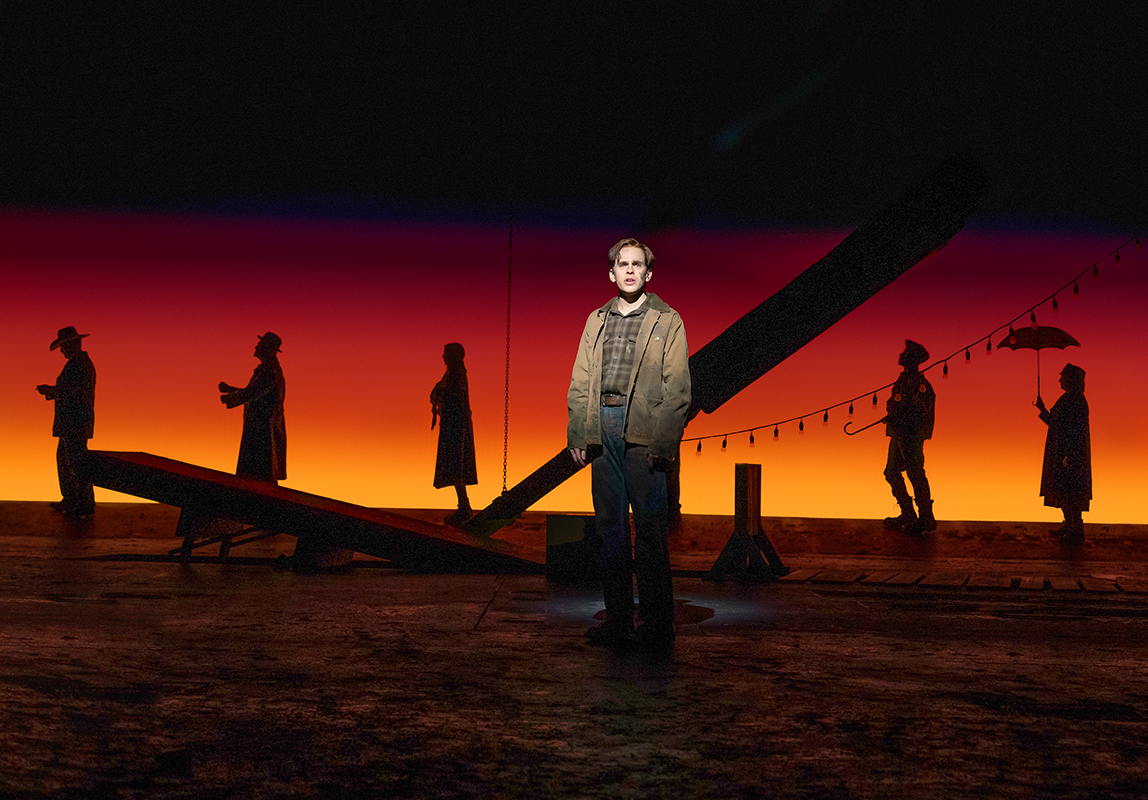
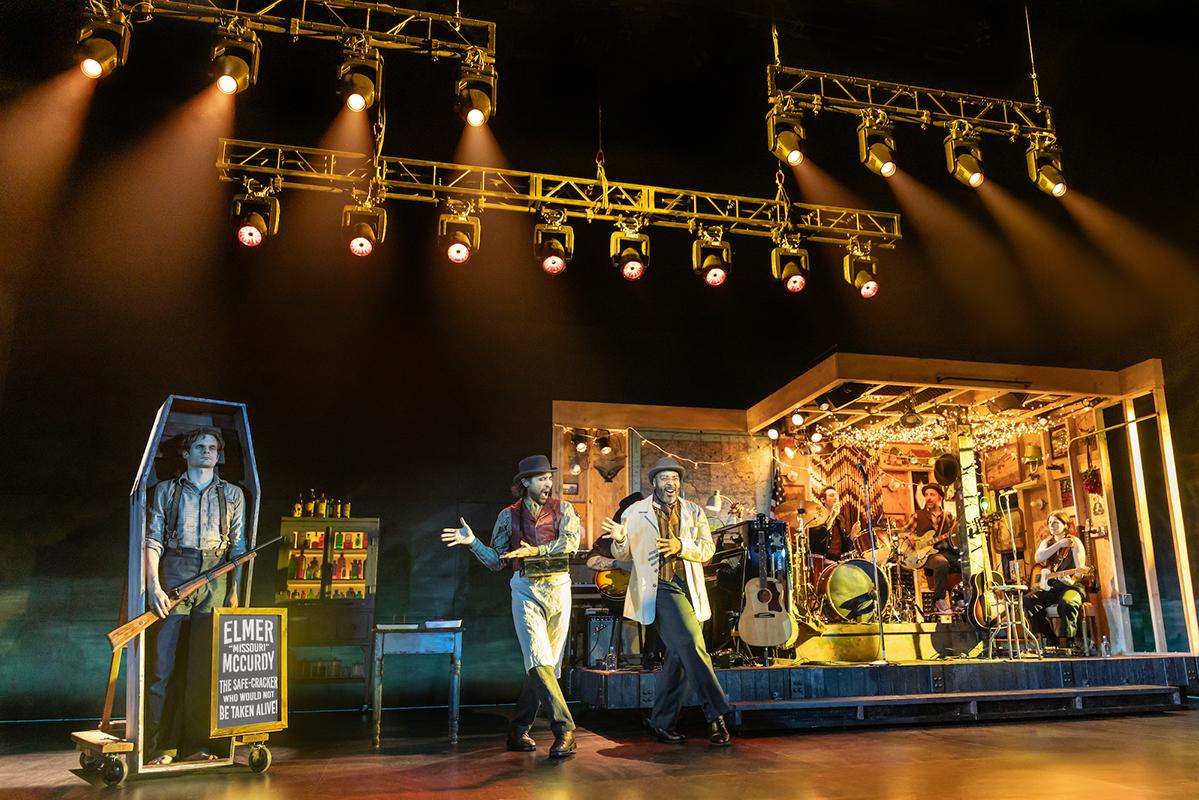
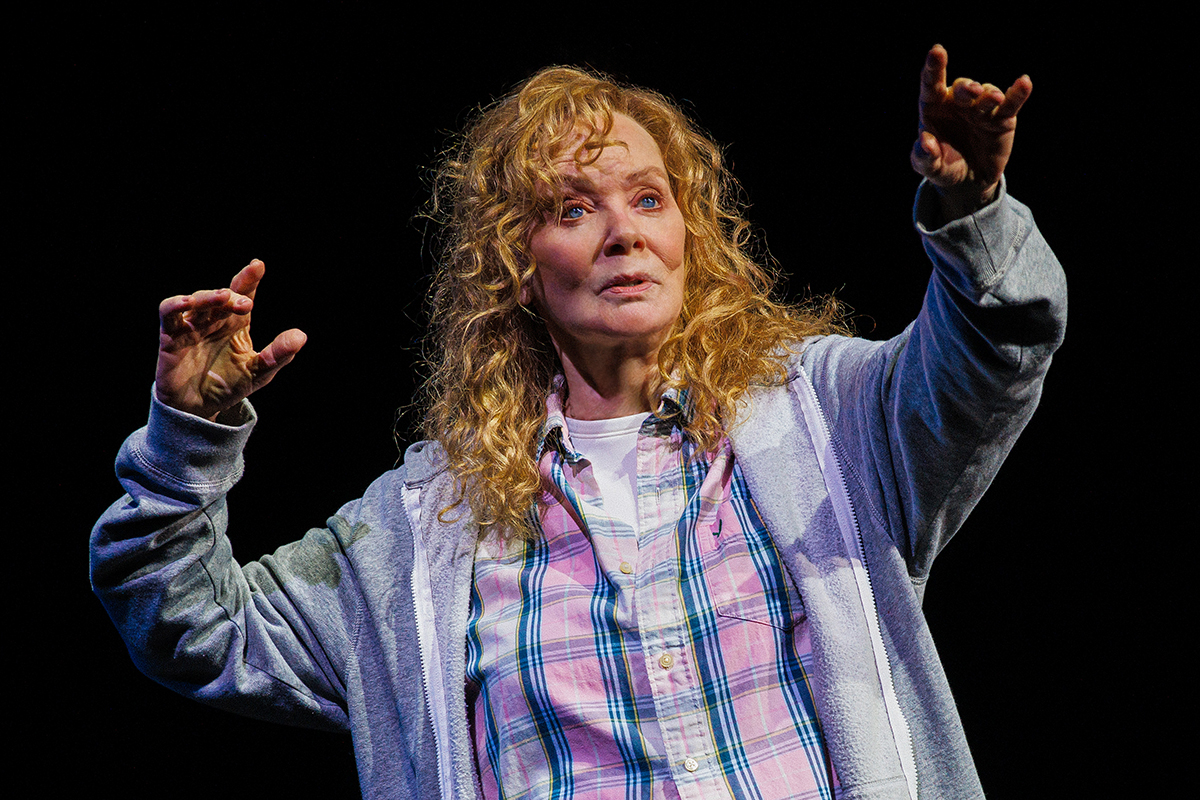













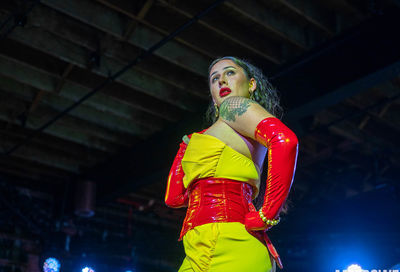

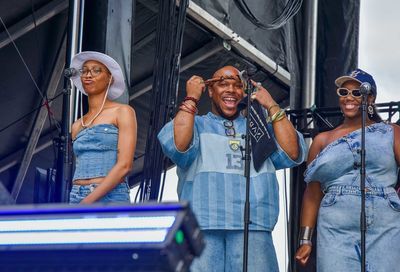

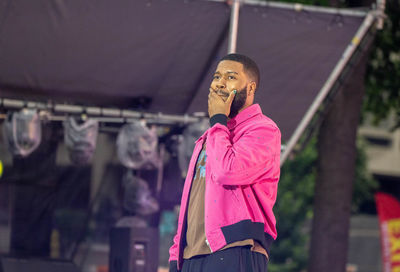



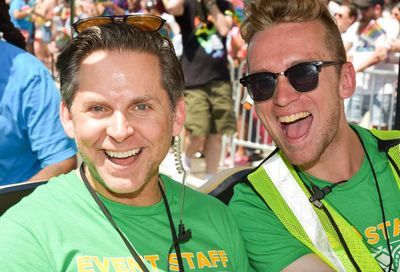

You must be logged in to post a comment.